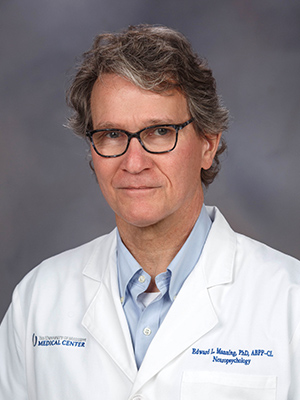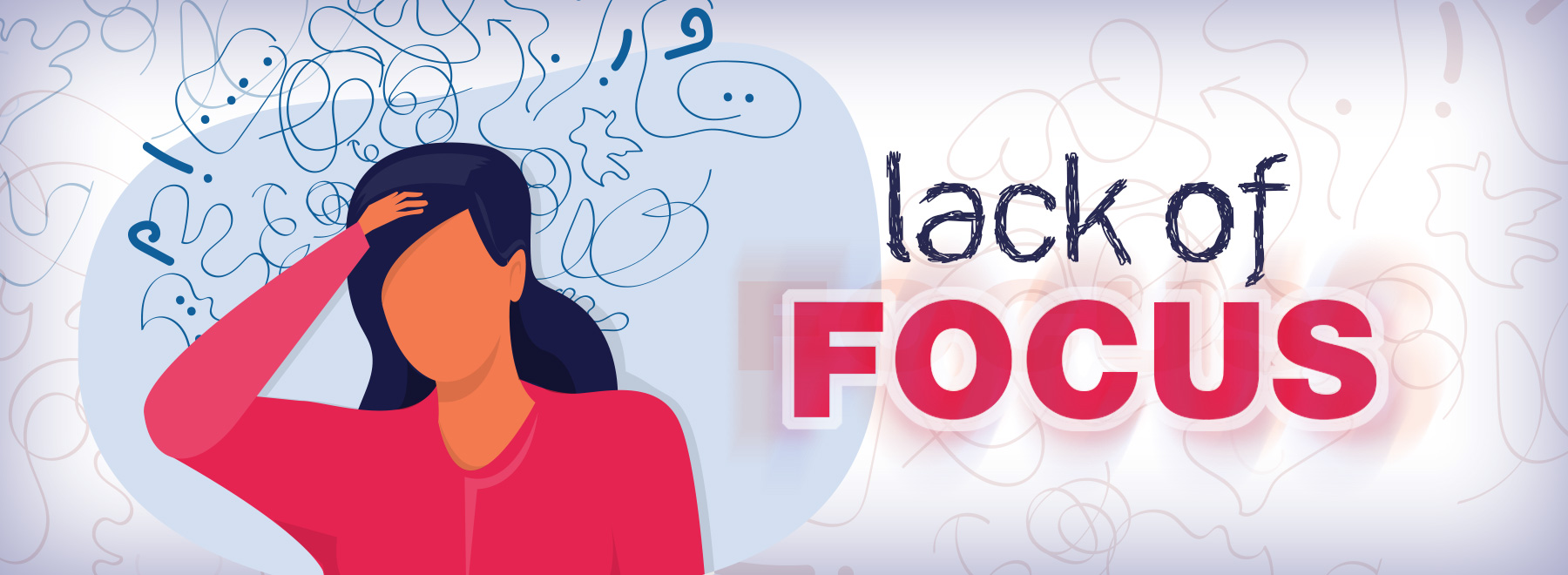Adult ADHD, left untreated, increases risks for negative outcomes
Staying focused, getting organized and completing tasks have been challenges for Pam Wilson most of her life. It wasn’t until her two teenaged children were diagnosed with attention deficit hyperactive disorder that she had an “Aha!” moment.
“I realized that I was showing some of the same characteristics my children had exhibited,” said the now retired elementary school teacher. “I began to consciously observe myself and my husband. I watched how we approached a task and how long it took us to complete simple and difficult projects or chores. Think about it for a minute -- it is in our DNA.”
A series of visits with a psychologist that consisted of extensive questionnaires and assessments confirmed what she and husband Wally, at the time 53 and 58, respectively, suspected: They’d both had ADHD since they were children.
The Mayo Clinic defines adult ADHD as a "mental health disorder that includes a combination of persistent problems, such as difficulty paying attention, hyperactivity and impulsive behavior” that can also lead to “unstable relationships, poor work or school performance, low self-esteem, and other problems.”
In hindsight, the Wilsons, of Madison, remember having symptoms as children, which showed up more at school than at home.
“Wally remembers homework being a challenge for him,” said Pam Wilson. “He would stop after completing one-fourth of it, not because the work was difficult but because he found something else that interested him. Personally, I had trouble sitting still in class, I talked a lot, sometimes I would blurt out, and had trouble staying focused on the teacher or preacher.”

The Wilsons’ children’s inherited ADHD is not uncommon, said Dr. Dustin Sarver, associate professor of psychiatry who treats children at the Center for Advancement of Youth.
“ADHD is a highly genetic psychological condition,” Sarver said. “In fact, heritability estimates range from 70 percent to 90 percent genetic contribution. A fascinating fact is that that is even higher than the genetic influence of human eye color, but just a smidge underneath height and weight.”
Roughly 9 percent of children in the United States have received a diagnosis of ADHD, with most diagnosed at around age 6, according to the Centers for Disease Control and Prevention.
Though some outgrow ADHD, about 50 percent to 66 percent of those diagnosed as children will continue to meet criteria for ADHD in adulthood, said Sarver. “We typically observe some residual behaviors, symptoms, and in some case impairments that are more obvious to others in the adult’s life but not to the individual.”
For the Wilsons, the symptoms became more challenging as adults.
“I found that on any given day, I could stop and look around only to discover that I had four or five things going on at one time, and I had not finished anything,” said Pam Wilson. “Wally vividly remembers that trying to pack a suitcase was a nightmare for himself. It was funny that the person testing him asked him if he could pack a suitcase.”
As a teacher, she most felt the negative effects when it came to turning in paperwork to the office on time. She fared better in the classroom because she was able to engage in teaching, allowing a lot of movement, and the freedom to guide and assess nonstop, breaking up the monotony.
Though some don’t notice the symptoms until they’re adults, they did have ADHD in childhood; it just wasn’t diagnosed, as with the Wilsons.

“There is no adult-onset ADHD,” said Dr. Edward Manning, professor of neurology and psychiatry. “The criteria for adult ADHD includes the requirement of onset of symptoms as a child.”
Treatment in adults is similar to that in children.
“Stimulants have been shown to be very effective,” said Manning. “There are also several non-stimulant medications that are effective. Psychological treatment – referred to as cognitive-behavior therapy, can be helpful in helping to change long-standing maladaptive behaviors – poor self-management, etc.”
Unfortunately, once treatments stop – behavioral and medication – so do their benefits, said Sarver.
“I like to use the analogy of eye glasses: when I use them I can see clearly, but when I take them off I no longer can see well, and it doesn’t matter how long I wear them; it does not improve my vision,” said Sarver.
Any physician can likely diagnose ADHD, said Manning, though some prefer to refer to a psychologist for a more careful review of the symptoms.
Left untreated, some adults adjust or adapt. Though symptoms may not worsen, the adverse effects can be frustrating, Manning said.
Others, however, do not fare as well. Recent studies examining the long-term effects of ADHD in adults who did not receive treatment found they are more likely to suffer from negative outcomes:
- Impaired quality of life
- Impaired relationships
- Vulnerability to addiction
- Reduced employment
- Vulnerability to depression and anxiety
- Impaired driving safety
- Premature death from accidents
- Suicide
- Obesity, added Sarver.
The Wilsons were both prescribed medication, which they have taken daily for more than a decade. It helps them stay more focused, and for longer periods of time, helping them to complete projects on time.
“If we miss a dose, sure we can tell, but we try not to let that happen,” Pam Wilson said.
Sarver recommends talking to a therapist about which treatments might work best for your specific diagnosis, and to avoid “snake-oil” treatments like nutritional supplements, fad diets or general “talk” therapies. “Treatment should be giving folks specific skills, encouraging their use of those skills, and practicing them.”
Though Sarver does not treat adults in his practice, he has in the past. Now, he works with the children of adults with ADHD. “So in that way, I often have to work with them on strategies to circumvent or accommodate for their own ADHD symptoms in order to help their child.”
Still, he stresses that “bad parenting does not cause ADHD. Ineffective parenting may make some symptoms more or less worse depending on how well/poorly it matches the child, family, and environment, but it does not cause ADHD.”
The Wilsons, now in their 60s, find that taking their daily meds, working their lists, and praying for continued focus works for them.
“Life is not as chaotic or unorganized for me,” said Pam Wilson. “That is not to say that my life was a total whirlwind prior to being diagnosed and prescribed medication. It is really hard to explain to anyone that does not suffer from ADHD or live with anyone that has this diagnosis. Wally thinks he is less prone to procrastination, and thinks I have become a perfectionist.”
The above article appears in CONSULT, UMMC’s monthly e-newsletter sharing news about cutting-edge clinical and health science education advances and innovative biomedical research at the Medical Center and giving you tips and suggestions on how you and the people you love can live a healthier life. Click here and enter your email address to receive CONSULT free of charge. You may cancel at any time.



